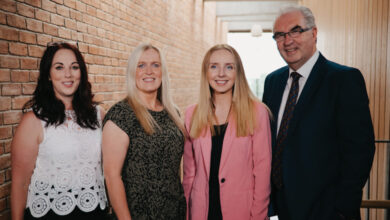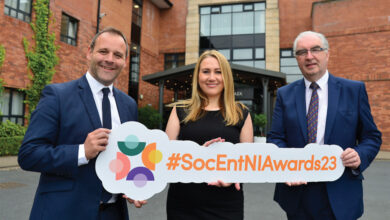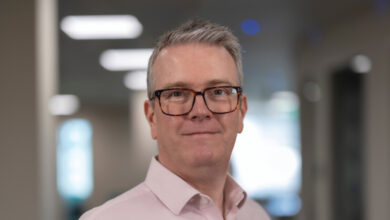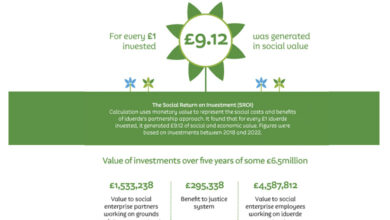Mental health thought leadership
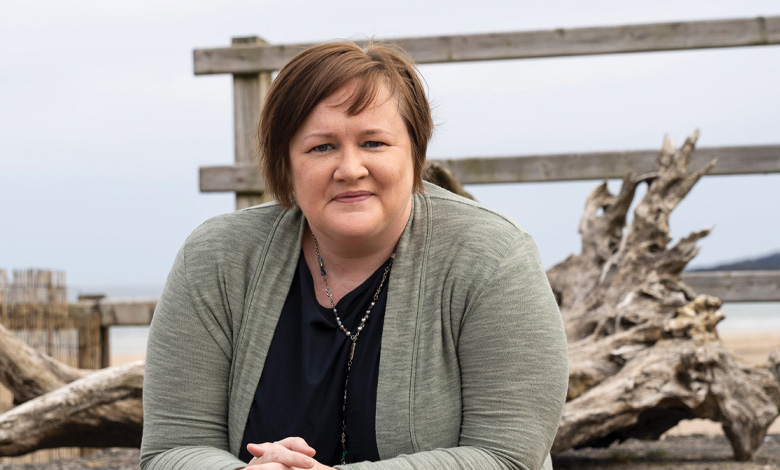
Leigh Carey, CEO of The Hummingbird Project, tells Joshua Murray about the organisation’s role as a thought leader in the mental health space, the challenges of operating a social enterprise in Northern Ireland, and her ambitions for growth.
Founded in March 2016, The Hummingbird Project has grown from “small beginnings” to now playing a collaborative role in ensuring mental health support in some of Northern Ireland’s largest corporations.
CEO and founder, Leigh Carey, who was awarded Social Enterprise Leader of the Year in 2019, explains her inspiration for starting a social enterprise, which aims to change the culture around mental health in Northern Ireland’s workplaces.
“The reason I thought this needed to be done was that a lot of the mainstream mental health charities were looking at a cure for mental health challenges, rather than a prevention which is what I believe in,” she says.
Carey further contextualises that her own personal challenges give her a unique perspective in empathising with her clients and patients. “I had always been healthy and never struggled with my own mental health, but after a very serious medical negligence case when I was aged 33, I could not have any more children and I was subsequently diagnosed with PTSD.
“Through my own experiences, I have been able to directly empathise with the people I help and I was able to help people and engage with them personally.”
She further explains how this experience, along with her philosophy on mental health, has shaped the approach taken to the provision of mental health services by The Hummingbird Project.
“We are all about ensuring that people who need our help are able to come in, be treated with respect, and work with us collaboratively, rather than the traditional methods of sticking to a by-the-book, procedural means where it is almost like the person is being talked down to. That has been the mission from the start.”
The social enterprise model
Being a social enterprise, according to Carey, has allowed The Hummingbird Project to work with “people in that space of the spectrum outside those who are already unwell with other corporations to make their staff healthier and their organisation healthier as a result”. She also states the benefit of the model as meaning that The Hummingbird Project is not reliant on government funding.
“The way in which government asks and allocates funding can come down to a numbers game. What we wanted to do was quality work; using the social enterprise model meant we were not forced to adapt our projects to fit the needs of funders,” Carey says. “That piece of work is worth doing. We would rather be able to self-fund. The model allows us to make money for ourselves to ultimately be self-sustainable.”
Articulating her belief that there is not enough government support to foster the growth of the social economy, Carey says: “The social enterprise space and the social economy is lagging in Northern Ireland behind the rest of the UK. Work needs to be done there so that we can clearly outline what social impact is and its benefits for organisations.”

Mental health thought leadership
Central to the outlook of mental health support for The Hummingbird Project, Carey explains, is covering “the whole spectrum of mental health”. She emphasises the importance of The Hummingbird Project’s 3U-Model©, which she explains allows people to “change and embed their lived experience in that idea, developing a collaborative relationship with either a group of people or an individual to work on their own recovery”.
“A lot of organisations only work with people who are unwell, but what we see is that if you are only working with people who are unwell and getting to the point where they’re getting a bit better, you are not addressing the issue.
“You need to work, yes, with those who are unwell, but also work with organisations in partnership and with people who have gone through things in their lives which make them more vulnerable to becoming mentally unwell and working with them to increase resilience,” she says.
“A lot of the work we do is about empowering people to be aware of their own circumstances and understand how they can stay well, do work with corporates and train with managers in order for them to be able to look after themselves and be able to better engage with their staff and get at this early rather than waiting until they are off sick. It is about trying to cover that spectrum of services to enhance early prevention and work with those who are unwell and get them back into recovery space.”
Message for decision-makers
Concluding, Carey calls on decision-makers to update their models for mental health services in Northern Ireland.
“Our role has always been around accountability. Do not make decisions for people if you have not been on that journey. You need to involve people who are at the mercy of the decisions you are making if they are to work on the ground.”
Continuing the accountability theme, Carey adds; “With every piece of work we do, an evaluation is done because we need to be able to show that whether it is private or public money, that the work made a difference. There is no point in investing in systems that you have no idea whether it will work or not.”

